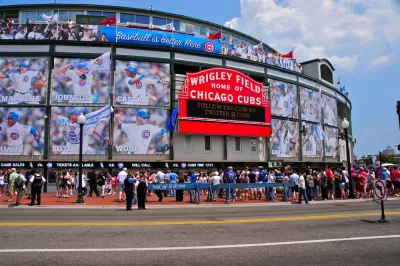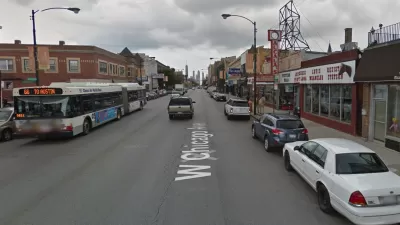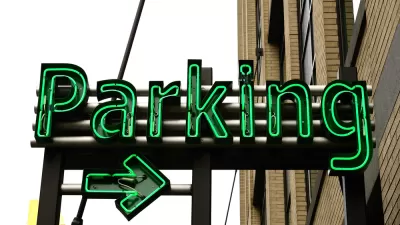Setting the example for the rest of city was too tough a pill to swallow for businesses located near Wrigley Field.

John Byrne reports: "A two-year experiment on raising parking meter prices around Wrigley Field during Cubs games and concerts will end this year, Wrigleyville’s alderman said Monday."
"Ald. Tom Tunney, 44th, said local businesses were tired of being the only ones in the city where 'surge pricing' was in place," according to the article. Tunney, who is running for re-election, is quoted in the article saying, "If we’re going to be the only ones, that isn’t right [….] It’s hard to defend, with business owners and residents complaining that it’s so expensive to park."
Since 2017, "metered parking in the area bounded by Irving Park Road, Belmont Avenue, Southport Avenue and Broadway increased from $2 to $4 an hour for seven hours starting two hours before Cubs games and concerts at the ballpark."
FULL STORY: Parking meter surge pricing around Wrigley Field for games and concerts to end this year

Planetizen Federal Action Tracker
A weekly monitor of how Trump’s orders and actions are impacting planners and planning in America.

Chicago’s Ghost Rails
Just beneath the surface of the modern city lie the remnants of its expansive early 20th-century streetcar system.

San Antonio and Austin are Fusing Into one Massive Megaregion
The region spanning the two central Texas cities is growing fast, posing challenges for local infrastructure and water supplies.

Since Zion's Shuttles Went Electric “The Smog is Gone”
Visitors to Zion National Park can enjoy the canyon via the nation’s first fully electric park shuttle system.

Trump Distributing DOT Safety Funds at 1/10 Rate of Biden
Funds for Safe Streets and other transportation safety and equity programs are being held up by administrative reviews and conflicts with the Trump administration’s priorities.

German Cities Subsidize Taxis for Women Amid Wave of Violence
Free or low-cost taxi rides can help women navigate cities more safely, but critics say the programs don't address the root causes of violence against women.
Urban Design for Planners 1: Software Tools
This six-course series explores essential urban design concepts using open source software and equips planners with the tools they need to participate fully in the urban design process.
Planning for Universal Design
Learn the tools for implementing Universal Design in planning regulations.
planning NEXT
Appalachian Highlands Housing Partners
Mpact (founded as Rail~Volution)
City of Camden Redevelopment Agency
City of Astoria
City of Portland
City of Laramie





























